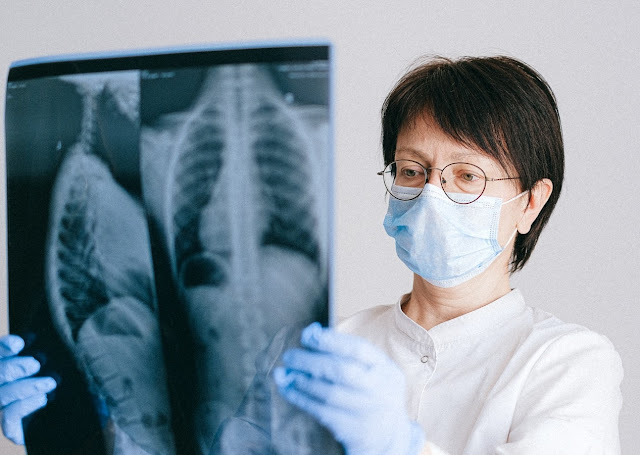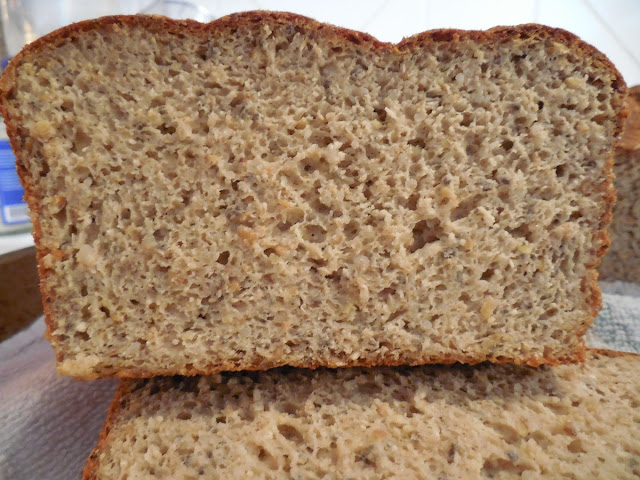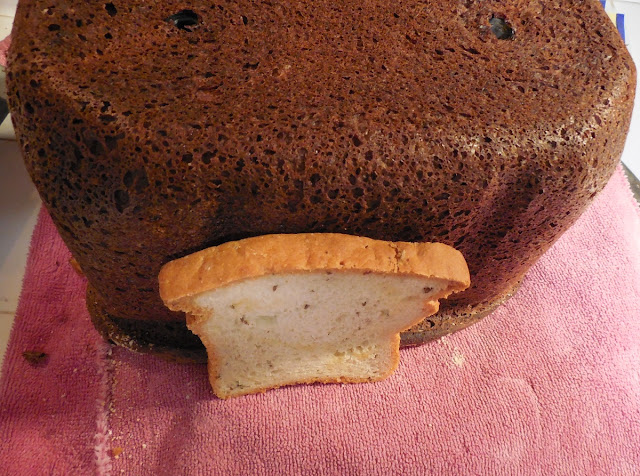Blood Clotting Problems in Celiac Disease
For some reason, blood clots are more likely if you have Celiac Disease. We don't usually connect these two conditions. Blood clots are the domain of cardiologists and neurologists who specialize in strokes. But we know that Celiac Disease comes with associated illnesses such as heart disease, autoimmune disease, thyroid, and diabetic problems. Now we know that it also comes with an increased risk of blood clots.
Exactly how those things connect with each other is a giant topic and crosses many medical boundaries. Things like that can be shown to be associated, but they are hardly ever treated together because it would require collaboration between gastroenterologists and cardiologists, endocrinologists or rheumatologists. The wave of the future will be these collaborations, but we patients must push our doctors and insurers to organize it.
So it's explanation time!
Let me pull apart the tricky words in the article below for you, and you'll see how blood clots connect with Celiac, and maybe you and your doctor will see a path to preventing some of the damage. The article is only 4 years old and I'm not sure how much more research is done in this area of medicine. I'd like to see more.
I'd like to read the entire article because I've had unexplained blood clots. Just a reminder, anyone can read the whole article if they have a good medical library close by. But you do have to physically go to Duke Medical Library or similar and access it from there. A few years ago I was too weak to walk down long hallways but my stamina is improving. For now, let's see what we can get from the Abstract only.
Extra-intestinal manifestations -- effects of Celiac disease in parts of the body besides the intestines (extra doesn't mean 'more' in this case, but 'outside')
Thromboembolic events - blood clots, and it goes on to specify strokes, vein thrombosis (often termed DVT or deep vein thrombosis) and loss of pregnancy (miscarriage).
Then the Abstract lists some diseases that have blood clots as a possible complication (hypercoagulability is the word for that). They specify that these are also associated with Celiac Disease.
At that point, the question should be brewing in our minds... is it the Celiac causing it, or is it the associated diseases? The author says these complications "add risk to the patients" so his view is that both Celiac Disease and the associated illnesses cause blood clots. (They love to stuff these sentences with several concepts at once!)
Pathogenic predisposing avenues -- in English that's conditions that make it more likely that a patient will get a blood clot. Pathogenic in this case just means 'cause of illness' not 'infection.'
Let's take each predisposing avenue and consider it:
1. Nutritional Deficiency - deficiency in Vitamin B12, Folate and Vitamin K are common in CD. Here he makes the point that these deficiencies aren't just a vaguely bad thing, but they contribute to the risk of blood clots specifically. Is it farfetched to suggest that these vitamins should be routinely tested in a Celiac patient, at least yearly?
2. Genetics - Ah, yes, we can blame a lot on genetics, but MTHFR abnormality is a very deep subject. In short, you may have heard of people having 'problems with homocysteine' but that's a vague statement too, if you don' t know what that is.
Homocysteine, in the human body, should be converted to a useful amino acid called "Methionine." You definitely have heard of methionine if you've been reading about health for a while. Methionine is used in thousands of energy producing reactions in the human body and a deficiency of it leads to serious illness, although the form of the illness can be varied.
MTHFR is an acronym for a gene, most genes are referred to as acronyms because their names are very long. Any of dozens of mutations in this gene can lead to a deficiency of an enzyme that is needed for converting homocysteine to methionine. The form that the mutation takes (please don't think mutant, think difference, this isn't science fiction, haha)... so the form of the mutation can predict what kind of disease will be caused if the person can't make enough methionine. The process of making it is fragile and necessary for health and life. This gene is under intense study and has made headlines.
OK that's enough about MTHFR. The next condition that raises the risk of blood clots...
3. Thrombophillic Autoantibodies - this is a group of antibodies (signal chemicals that direct the attention of the immune system to a particular thing or area in the body), they are AUTOantibodies, meaning they attack human tissues, cells and sometimes individual chemicals of the body (antiphospholipid syndrome is like this). Any disease where the immune system attacks the body may also include antibodies that are 'thrombophillic,' meaning, they directly cause more blood clotting.
This article can provide you with a preview of what your doctor may be thinking if you have had a clotting event already, it's technical but mentions antiphospholipid antibodies also. I'm pretty sure I haven't had those checked, so I plan to discuss that with my doctor since he has already recommended that I see a hematologist. Bringing this up to your doctor may help you clarify your own health, if you've had clotting also.
4. Hyperhomocysteinemia - 'too much' homocysteine in the body, the cause of it may not be MTHFR, but a deficiency of some other enzymes that help break it down. Any time there's too much homocysteine, the cause should be looked at because it can lead to strokes, pulmonary embolisms and heart disease. Those are all serious problems and the sooner the cause is located, the better.
5. Endothelial dysfunction - this is a fancy word for the cause of hardening of the arteries and plaque formation. This is the origin of heart disease, and also includes a higher risk of blood clots. How can you tell if you have it? If you've had a clotting event, you've probably been tested by at least one of these methods. But if you haven't, and you suspect this may be an issue, it may be time to call your MD and ask about it.
6. Platelet abnormalities - well that's clear enough, but it begs the question, 'Like what?' Well first, we can ignore hemophilia because we're talking about blood clots, not the opposite. The Merck manual helps us identify that there is a reactive clotting function of platelets. It can be triggered by infection, chronic inflammation or several other things, including bowel diseases.
All of these things are risks we take with Celiac Disease. All it takes is one glutening event, and our intestines become leaky, leading to a local infection, about a week of chronic inflammation (some people, weeks), and gut damage. So while this term is vague, what it boils down to is, gluten exposure can trigger blood clotting. The reaction your body has to accidental gluten in your food can be life threatening if your blood already tends to clot. And the risk increases with age, hand in hand with the risk of heart disease.
So here we are. The last sentence in the Abstract states that the author believes that blood thinning medications or management of the predisposing factors (1-6 above) should be considered on a case by case basis. I've been on warfarin, wow what a pain! Every two weeks, a blood draw. And I've known someone with a family history of clotting who has to endure that all his life. Since then, I had the sincere pleasure of learning that senior citizens often get a home PT-INR tester device so they don't need to travel and get so much blood drawn. I also hated that I had to avoid healthy foods like salads, or reduce the amount of salad I ate. I'm a big fan of salad.
On the other hand, there is also the option of effective supplements for blood thinning. First, of course is aspirin, an over the counter drug, taken in 81 - 325mg for daily use. But there are others. Fish oil is known to thin blood slightly, as is Vitamin E. Nattokinase is a purified enzyme that works for most people, and it comes from a soybean based food popular in Japan among the elderly.
If you prefer to obtain these things from food, OK, no problem. The food you're looking for is Natto (available from Amazon), but be warned, it won't sound appetizing, so just try it before you scare yourself too much. The other food would be fish livers. These are available canned as "cod livers in their own oil" and come from France or northern Europe. Cod livers are usually made into "deviled eggs" and you can find recipes for how to do that online. According to reports, they don't taste very fishy. I haven't tried it yet, but I did order some. Who knows? It might be delicious.
In conclusion, I finally may have an explanation for why I had life threatening blood clots at a young age. We don't often think of blood clots in combination with Celiac Disease, it's probably not a risk anyone worries about. It can seem like lightning that strikes out of the blue sky. But if you have Celiac Disease it's not likely to be for no reason. And the stakes get higher as you get older. Hopefully by the time I'm officially elderly, these theories will have been clarified and procedures in place for how to deal with them. Until that day, you and I have to be proactive about looking into it and taking what steps are reasonable to lower our risk.
Post Script: I am delighted to credit Gluten Dude for this link which has even more up to date information on blood clots and Celiac Disease.
By the way, please go out and VOTE today! Your voice matters a lot.
Exactly how those things connect with each other is a giant topic and crosses many medical boundaries. Things like that can be shown to be associated, but they are hardly ever treated together because it would require collaboration between gastroenterologists and cardiologists, endocrinologists or rheumatologists. The wave of the future will be these collaborations, but we patients must push our doctors and insurers to organize it.
So it's explanation time!
Let me pull apart the tricky words in the article below for you, and you'll see how blood clots connect with Celiac, and maybe you and your doctor will see a path to preventing some of the damage. The article is only 4 years old and I'm not sure how much more research is done in this area of medicine. I'd like to see more.
I'd like to read the entire article because I've had unexplained blood clots. Just a reminder, anyone can read the whole article if they have a good medical library close by. But you do have to physically go to Duke Medical Library or similar and access it from there. A few years ago I was too weak to walk down long hallways but my stamina is improving. For now, let's see what we can get from the Abstract only.
Review: Hypercoagulability in celiac disease - An update
Author Aaron Lernera
Received 16 June 2014, Accepted 7 July 2014, Available online 20 August 2014.
Pediatric Gastroenterology and Nutrition Unit, Carmel Medical Center, Rappaport School of Medicine, Technion-Israel institute of Technology, Haifa 34362, Israel
The Zabludowicz Center for Autoimmune Diseases, Sheba Medical Center, Tel-Ashomer 52621, Israel
Extra-intestinal manifestations -- effects of Celiac disease in parts of the body besides the intestines (extra doesn't mean 'more' in this case, but 'outside')
Thromboembolic events - blood clots, and it goes on to specify strokes, vein thrombosis (often termed DVT or deep vein thrombosis) and loss of pregnancy (miscarriage).
Then the Abstract lists some diseases that have blood clots as a possible complication (hypercoagulability is the word for that). They specify that these are also associated with Celiac Disease.
- Lupus - a disease where the immune system attacks certain organs
- and Antiphospholipid Syndrome - a disease where the immune system attacks all the cells of the body at once, because a 'phospholipid' is the target, and every cell has a cell membrane made of it.
At that point, the question should be brewing in our minds... is it the Celiac causing it, or is it the associated diseases? The author says these complications "add risk to the patients" so his view is that both Celiac Disease and the associated illnesses cause blood clots. (They love to stuff these sentences with several concepts at once!)
Pathogenic predisposing avenues -- in English that's conditions that make it more likely that a patient will get a blood clot. Pathogenic in this case just means 'cause of illness' not 'infection.'
Let's take each predisposing avenue and consider it:
1. Nutritional Deficiency - deficiency in Vitamin B12, Folate and Vitamin K are common in CD. Here he makes the point that these deficiencies aren't just a vaguely bad thing, but they contribute to the risk of blood clots specifically. Is it farfetched to suggest that these vitamins should be routinely tested in a Celiac patient, at least yearly?
2. Genetics - Ah, yes, we can blame a lot on genetics, but MTHFR abnormality is a very deep subject. In short, you may have heard of people having 'problems with homocysteine' but that's a vague statement too, if you don' t know what that is.
Homocysteine, in the human body, should be converted to a useful amino acid called "Methionine." You definitely have heard of methionine if you've been reading about health for a while. Methionine is used in thousands of energy producing reactions in the human body and a deficiency of it leads to serious illness, although the form of the illness can be varied.
MTHFR is an acronym for a gene, most genes are referred to as acronyms because their names are very long. Any of dozens of mutations in this gene can lead to a deficiency of an enzyme that is needed for converting homocysteine to methionine. The form that the mutation takes (please don't think mutant, think difference, this isn't science fiction, haha)... so the form of the mutation can predict what kind of disease will be caused if the person can't make enough methionine. The process of making it is fragile and necessary for health and life. This gene is under intense study and has made headlines.
People who take the supplement SAMe are taking a form of Methionine that the body can use. Although claims for its use vary, the supplement is certainly going to have an effect if someone is having a problem with this conversion. Unfortunately, the supplement can't clean up the homocysteine that's left over, and that can still make you feel sick. If you've had a 23andme test and it showed this mutation, the best defense is to get B12 shots. In the USA, these can be given by a nurse, you don't need a doctor's prescription. Locally in Durham, the testing facility, Any Test Now, provides B12 shots, as do several alternative health practitioners, like the staff at PrimeMD. For some reason it's a major struggle to get these shots from a regular doctor though.
OK that's enough about MTHFR. The next condition that raises the risk of blood clots...
3. Thrombophillic Autoantibodies - this is a group of antibodies (signal chemicals that direct the attention of the immune system to a particular thing or area in the body), they are AUTOantibodies, meaning they attack human tissues, cells and sometimes individual chemicals of the body (antiphospholipid syndrome is like this). Any disease where the immune system attacks the body may also include antibodies that are 'thrombophillic,' meaning, they directly cause more blood clotting.
This article can provide you with a preview of what your doctor may be thinking if you have had a clotting event already, it's technical but mentions antiphospholipid antibodies also. I'm pretty sure I haven't had those checked, so I plan to discuss that with my doctor since he has already recommended that I see a hematologist. Bringing this up to your doctor may help you clarify your own health, if you've had clotting also.
4. Hyperhomocysteinemia - 'too much' homocysteine in the body, the cause of it may not be MTHFR, but a deficiency of some other enzymes that help break it down. Any time there's too much homocysteine, the cause should be looked at because it can lead to strokes, pulmonary embolisms and heart disease. Those are all serious problems and the sooner the cause is located, the better.
5. Endothelial dysfunction - this is a fancy word for the cause of hardening of the arteries and plaque formation. This is the origin of heart disease, and also includes a higher risk of blood clots. How can you tell if you have it? If you've had a clotting event, you've probably been tested by at least one of these methods. But if you haven't, and you suspect this may be an issue, it may be time to call your MD and ask about it.
When discussing heart disease, I just want to mention that there is an alternative theory to the 'cholesterol causes plaque' theory. There is a rebellion in cardiology against the mainstream model and I personally find it very convincing. You should, of course, make up you own mind about it.
6. Platelet abnormalities - well that's clear enough, but it begs the question, 'Like what?' Well first, we can ignore hemophilia because we're talking about blood clots, not the opposite. The Merck manual helps us identify that there is a reactive clotting function of platelets. It can be triggered by infection, chronic inflammation or several other things, including bowel diseases.
All of these things are risks we take with Celiac Disease. All it takes is one glutening event, and our intestines become leaky, leading to a local infection, about a week of chronic inflammation (some people, weeks), and gut damage. So while this term is vague, what it boils down to is, gluten exposure can trigger blood clotting. The reaction your body has to accidental gluten in your food can be life threatening if your blood already tends to clot. And the risk increases with age, hand in hand with the risk of heart disease.
So here we are. The last sentence in the Abstract states that the author believes that blood thinning medications or management of the predisposing factors (1-6 above) should be considered on a case by case basis. I've been on warfarin, wow what a pain! Every two weeks, a blood draw. And I've known someone with a family history of clotting who has to endure that all his life. Since then, I had the sincere pleasure of learning that senior citizens often get a home PT-INR tester device so they don't need to travel and get so much blood drawn. I also hated that I had to avoid healthy foods like salads, or reduce the amount of salad I ate. I'm a big fan of salad.
 |
| Fish Oil can be used to slightly thin blood. |
On the other hand, there is also the option of effective supplements for blood thinning. First, of course is aspirin, an over the counter drug, taken in 81 - 325mg for daily use. But there are others. Fish oil is known to thin blood slightly, as is Vitamin E. Nattokinase is a purified enzyme that works for most people, and it comes from a soybean based food popular in Japan among the elderly.
If you prefer to obtain these things from food, OK, no problem. The food you're looking for is Natto (available from Amazon), but be warned, it won't sound appetizing, so just try it before you scare yourself too much. The other food would be fish livers. These are available canned as "cod livers in their own oil" and come from France or northern Europe. Cod livers are usually made into "deviled eggs" and you can find recipes for how to do that online. According to reports, they don't taste very fishy. I haven't tried it yet, but I did order some. Who knows? It might be delicious.
In conclusion, I finally may have an explanation for why I had life threatening blood clots at a young age. We don't often think of blood clots in combination with Celiac Disease, it's probably not a risk anyone worries about. It can seem like lightning that strikes out of the blue sky. But if you have Celiac Disease it's not likely to be for no reason. And the stakes get higher as you get older. Hopefully by the time I'm officially elderly, these theories will have been clarified and procedures in place for how to deal with them. Until that day, you and I have to be proactive about looking into it and taking what steps are reasonable to lower our risk.
Post Script: I am delighted to credit Gluten Dude for this link which has even more up to date information on blood clots and Celiac Disease.
By the way, please go out and VOTE today! Your voice matters a lot.




